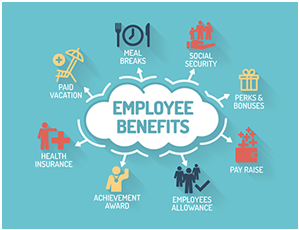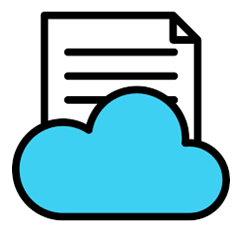13 Most Valuable Employee Payroll Tips for Small Business Owners
The term “payroll” in any organisation refers to the list of employees that receive compensation from the company. Payroll would also refer to a company, department, or software being used to process Salaries & taxes or to the process of calculating & distributing employees’ Salaries. As a small Business Owner, Payroll is one of the most time consuming, tedious, and Administratively burdening business activity. Employee Payroll is often viewed & perceived as a bane to the ever-burdened Accounting / HR Team of the Organisation.
The following tips would help employee payroll to be easier, more accurate & more streamlined than ever before.
1. Create a Budget & Financial Back-up Plan

Always create a Budget for Payroll in your Business financial planning. In most businesses the maximum expenditure would be on Human resources & on manufacturing or Production. Always work within a budget & Expenditure where in, only as much as your business can generate revenue. If your outstanding Debtors list is huge, then it is obvious that you do not have enough funds to make Payout be it SALARIES and this creates a major cashflow issue. It is crucial for any growing business to stay on top of payments from clients. Always set aside an emergency fund. Create a good credit control system & be diligent in sending out invoices & chasing late payments to maintain a healthy cash flow in the organisation.
2. Plan for Employee Benefits
With the unprecedented pandemic situation , “Remote Employment” has become a norm and more & more popular, for businesses looking to hire highly qualified individuals but remotely, it’s important to design a plan that not only attracts these employees but also encourages them to stay for years to come. This means setting up the best employee benefits package that will attract the kind of employees that your organisation wants. You must Consider consulting with an expert who can tailor an employee benefits package for your company and help you in your payroll process.

3. Do not Forget About Accounts Payable & Receivable

Many small businesses fail due to poor cash flow management & financial planning, so it’s crucial for you to stay on top of money coming in & Money going out. Take the time to regularly check in on your accounts payables and understand the outflows of finances. If the business is in a tight spot, it is likely that extending the terms or paying a late fee will have less of a harmful effect than missing out on payroll, which can cause compliance issues. Secondly, check in on your account receivables. Raise Invoices on time and follow up and collect payments on time and do not overextend credit periods when you are not able to do so, basically a good credit control system needs to be in place.
4. Integrate with Your Scheduling & Accounting System
Have a robust accounting system in place which would help you with managing your Accounting & Finance. Small Business Owners depend on accurate, timely & efficient payroll system. Having a seamless integration into accounting systems such as Tally or QuickBooks, Saral & Vyapar that automatically push data into a central accounting system will make payroll management faster, accurate, and more efficient. This, in turn, inspires your staff to trust & rely on their schedules & Payment runs & to treat your business like it was part of their own.

5. Check Employee Details for Accuracy

During the process of hiring employees and during the onboarding of new joiners, make it a point to check their Salary Details provided for accuracy. By ensuring that you have the correct full name, address, Date of birth, salary structures, bank details, start date, ID details like PAN and Aadhar, etc. There are many times where employees make changes like address or bank account or ID rectification, which all must be up to date. It is important, that you don’t get overwhelmed or tired of these responsibilities that come with payroll when it’s time to prepare, as it’s very crucial to enter the right data.
6. Classify Your Employees Properly
One of the most important things an employer must do with regards to the preparation of payroll or payroll processing is to classify workers correctly. It may seem simple, but it is ever so easy for new employers to unintentionally misclassify workers, a mistake that has huge tax implications & could get you on the wrong side of the Government and the ministry of labor & employment of India. It goes without saying that compliance & tax penalties can put a serious issue with the authorities. If you are unsure about how to categorize your employees, get in touch with Experts who are specialists in HR & Labour law consulting.

7. Tracking Attendance, Work Hours & Leaves

Salaries are usually fixed components based on time and efforts contributed towards the organization. Some organizations pay by the hour and some pay a fixed monthly calculation with some variables. However, it might not make sense for your business model or for the type of work your staff are doing. Paying by the hour is more complex, as you’ll need to keep track of how many hours each staff member has worked and then calculate their pay each period. Maintaining a timesheet can make this easier for you to manage, allowing your staff to clock in & out. A timesheet can also integrate with your payroll software keeping everything up to date. The labor law comes in place here, where the employer must follow the set rules, like maximum daily working hours, weekly day-offs, national holiday calendars, annual leaves, etc as per each state.
8. Choose Your Business Payout Schedule Wisely
Small businesses have a lot of options when it comes to, how often they pay their employees, and there are a lot of factors business owners must consider when deciding how often to run payroll. Pay-outs can vary from Weekly, bi-weekly, bi-monthly, or monthly? That typically depends on the overall size of the company. Switch to a Monthly Pay Schedule for the business to pay out effectively. However, as your business grows, your needs may change from time to time.

9. Create a Clear Payroll Policy

During onboarding of new employees, have them review & sign a payroll policy form along with the company HR Policy which should be easily accessible to them at any given time. Make sure that you Include how & when employees will be paid, what their compensation is & whether there are any additional considerations (such as sick Leaves, Business Expense Reimbursement information, Commission Rates & Incentives or even Loss of Pay). Having this on file is helpful to ensure both you & your employees understand the salary and Payout details.
10. Document Your Payroll Process
Benjamin Franklin once said, “If you fail to plan, you are planning to fail!”. Planning comes with structured processes & Documenting your payroll process ensures that there is a business continuity plan & easy for succession between exit employees and new joinees for the role. With a structured payroll process, it would be easy to train your team and have an effective system in place. This should Include every detail from payroll’s role at the time of onboarding to termination of employees. Finally, make sure these procedures are included in the onboarding / orientation program for new hires.

11. Stay Compliant with PF & Labour Laws

India’s labour laws underwent a major update in the Industrial Disputes Act of 1947. Since then, an additional 45 national laws expand or intersect with the 1948 act & another 200 state laws control the relationships between the worker and the company. Staying compliant with the labour laws of each state is a tedious task & requires strict compliance. As an employer, you need to comply with your state’s labour laws & statutory rules, provide payroll accurately & on time. This task can be challenging as you hire more people with different employment classifications & benefits.
12. Consider a Cloud-based Provider
A cloud-based Payroll system can be accessed in real-time from any part of the world. One of the best practices that any company can follow to make payroll easier is to move to a cloud-based payroll provider. The system would allow employees, managers & owners to view & update payroll details from their phones or computers. They often offer full-service, tax filing & payments for every employee regardless of their location, including generating Payslips, Salary Details, TDS details, and HR documentation for each worker. Costs are quite reasonable & scale up with your business as you add new workers.

13. Hire a Professional Payroll Company

Companies in startup mode are busy concentrating on the big picture, like generating income or building their products, Scaling and Looking for Investments, etc. Payroll is neither attractive nor exciting for them. Organizations want to concentrate on their core focus and leave the rest to outsourced professionals. When you do so, you need to know Your Payroll Provider’s background like their transparency, reliability, knowledge in the field, labour law information as per the state, etc. There are many crucial issues to consider here — PF, ESI, Gratuity, Labour Laws, Statutory Compliance, etc. Though you pay a little bit more for a payroll service, it is worth it, as it mainly avoids paying penalties, missing deadlines, mismatch in numbers, and will instead help keep your business stay compliant & healthy.
Hope this blog has provided you with enough payroll tips & if you ever need a customised payroll solution you can always get in touch with us at multirecruit.com


Comments
Post a Comment